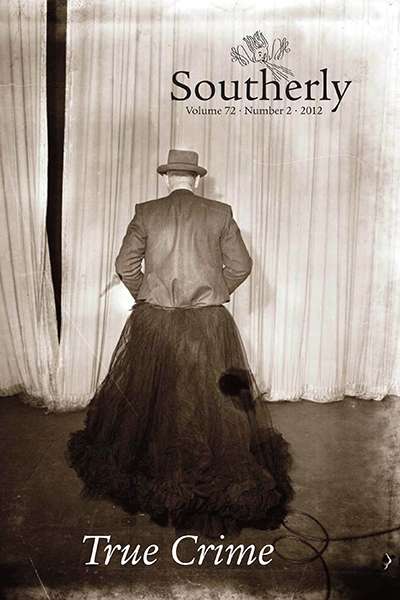Andrew Fuhrmann
Sign up to Book of the Week and receive a new review to your inbox every Monday. Always free to read.
Recent:
Writing to his brother in 1889, Anton Chekhov advised: ‘Try to be original and as clever as possible in your play, but do not be afraid of appearing stupid. Freethinking is essential, but to be a freethinker one must not be afraid to write nonsense.’
I thought a lot about nonsense during the Melbourne Theatre Company’s ne ...
‘If men are masters of their fate,’ asks the American feminist Susan Faludi, ‘what do they do about the unspoken sense that they are being mastered, in the marketplace and at home, by forces that seem to be sweeping away the soil beneath their feet?’
... (read more)‘If men are masters of their fate,’ asks the American feminist Susan Faludi, ‘what do they do about the unspoken sense that they are being mastered, in the marketplace and at home, by forces that seem to be sweeping away the soil beneath their feet?’
Perhaps they go on a cruise. That, at least, is what Runt, Craze, Rabbit, and Geor ...
You’ve got to admire the bolshie great yarbles of young British company Action to the Word. It must have taken much courage and not a little jejune presumption to dream of touring Anthony Burgess’s novel A Clockwork Orange (1962) to such capital city main-stage venues as Melbourne’s Malthouse Theatre, QPAC in Brisbane, and Canberra’s Theatre Centre. Such confidence is difficult to understand. This new production is only marginally more advanced than an average – very average – work of student theatre, or at best a fringe festival experiment.
... (read more)Stephen Sewell’s sixth play, Hate, first performed in 1988 and written with a bicentennial commission, is a monster of ambition. It is a play that seems to swallow whole the Australian story since 1788 and represent a family tragedy, one steeped in the ritual violence of an Ancient Greek myth or a perverted Easter drama.
...Was there ever an Australian poet who drank so deep of that turbid spring, enthousiasmos, Aristotelian enthusiasm, as Dorothy Porter? From the grungy vitality of her early collections, to the exuberant embrace of popular genre fiction in her five verse novels, to the high, passionate tone of her lyrics, libretti, and later collections, she was never less than ...
How is it that the sordid ‘familial romance’ of Laius, Jocasta, and Oedipus, or ‘daddy, mommy, and me’, came so completely to define the concept of desire in the modern West? For Deleuze and Guattari, authors of The Anti-Oedipus, that is the true sphinxian riddle at the heart of the Oedipus materials, the myth, and its subsequent interpretations from Sophocles to Freud and beyond. Forty years after the publication of their famous broadside against mainstream Freudian psychoanalysis, and notwithstanding a significant and growing body of sceptical opinion, the Oedipal complex is still widely regarded as humanity’s universal history. In fact, argue Deleuze and Guattari, it is nothing of the sort. Rather, they say, Oedipal desire is an historically contingent, socio-cultural consequence of capitalism. When psychoanalysts, historians, sociologists, anthropologists, ethnologists, and even dramatists reach for an Oedipalised analysis of social relations, they not only violently disfigure our understanding of desire, but also reinforce and normalise the omnivorous progress of capitalism and its patriarchal social forms.
... (read more)‘An admired talent for the theatre / Even when I was small / A man born of the stage you see / Histrionic / Setting snares even when very little.’ Such is the epigraph to Thomas Bernhard’s The Histrionic (Der Theatermacher), drawn from the play’s principal character, the megalomaniacal Bruscon. The image of the snare, or trap, is a common one in the work of Bernhard, typically figuring a moment of exposure: the individual left open by falsehood or deceit to the calumny of the world.
... (read more)


